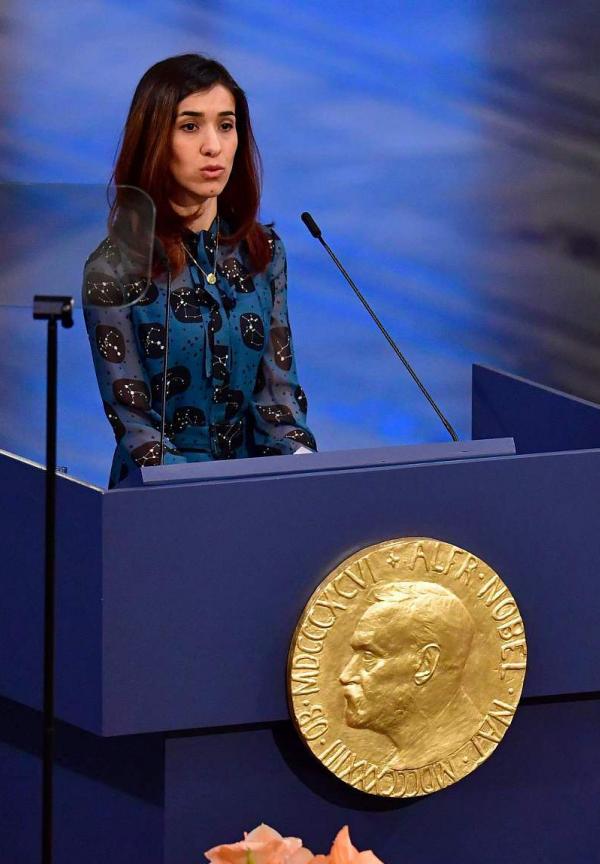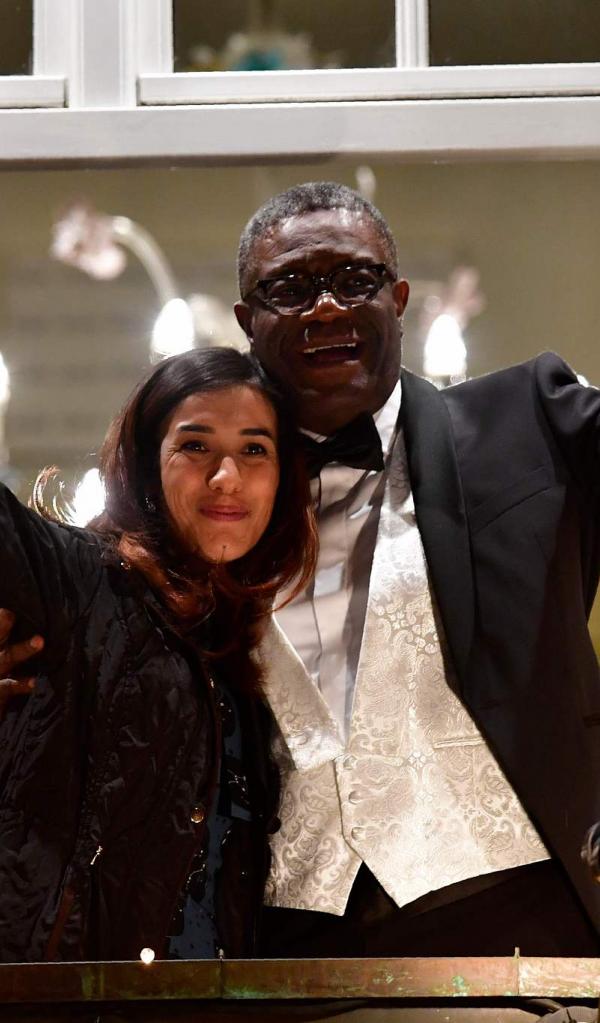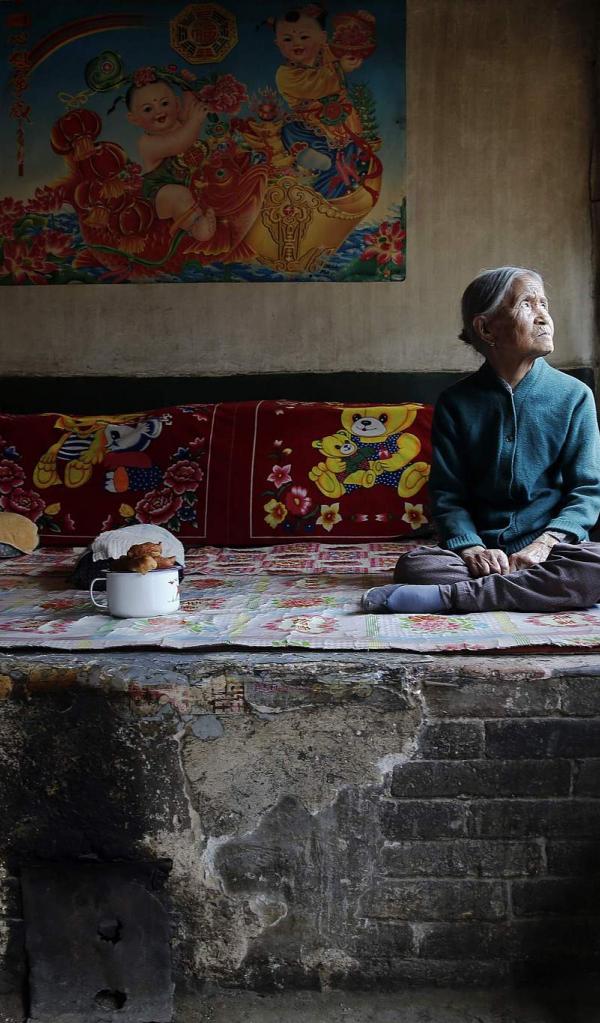2018年12月10日,诺贝尔奖颁奖仪式在斯德哥尔摩举办。像往年一样,颁奖仪式吸引了全世界的目光。今年诺贝尔奖委员会将诺贝尔和平奖授予纳迪亚·穆拉德和德尼·穆奎格,表彰“他们为终结战争和武装冲突中使用性暴力作为武器这一现象所做出的努力”。
对于女性而言,这是一个具有里程碑意义的时刻。纵观历史,性暴力一直都是战争中常见的一部分,但是,“强奸作为战争武器”这一短语,直到在20世纪90年代才被研究者、决策者以及媒体分析人士广泛使用。不过,仅仅在近些年,性暴力才成为联合国和许多人权组织议程上的一个重要的问题。在这种背景下,穆拉德和穆奎格获得诺贝尔和平奖也就不足为奇了。这两位获奖者都为结束对女性的性暴力做出了贡献,而且通过他们的努力使这一议题成为国际社会的关注焦点。
穆拉德是在极端组织“伊斯兰国”发动的战争中遭遇性暴力的幸存者,她唯一可以使用的武器是“大声说出来”——讲述她的故事,从而帮助本国跟她一样遭受性暴力的姐妹,以及全世界无数的强奸受害者。穆奎格是一名男性妇科医生,他治疗并帮助了数千名在刚果(金)内战期间遭受性暴力的女性。诺贝尔奖本身就是对两位获奖者为解决性暴力问题所做的努力的认可,说明了解决性暴力问题的紧迫性。
诺贝尔和平奖的帷幕落下了,要建设一个“没有强奸受害者”的美好世界,道路依然漫长而艰辛。
全世界应该听到更多战争时期遭受性暴力的幸存者的声音。“讲故事”是穆拉德的武器,所幸的是,她讲述的有关性暴力记忆和创伤的故事被听到了。在联合国论坛上的首次公开演讲中,她强调:自己“只是无数雅兹迪(Yazidi)受害者中的一员”。她的勇气有望激励更多的性暴力幸存者发出自己声音,反对性暴力和人口贩卖。
大部分中国人对“慰安妇”这个词可能并不陌生。这一词是对二战期间,邻近日本的亚洲国家中被日本军方绑架或强迫成为性奴隶的女孩和妇女的委婉称呼。据上海师范大学慰安妇研究中心统计,在近40万名“慰安妇”中近一半是中国人。这些“慰安妇”和穆拉德一样,都是遭受过性虐待和监禁的性奴隶。但是整个社会对“慰安妇”的状况和她们的创伤性记忆缺乏关注。“慰安妇”主题的纪录片如《二十二》和《大寒》”在中国的低票房成绩在一定程度上证明了这一点。
非常有必要对战争时期遭受性暴力的幸存者提供持续和全面的支持。这些女性所承受的痛苦不仅是身体上的,而且是心理上的。她们不仅承载着自己的悲惨经历所带来伤痛,还承受着目睹她们的朋友和家人遭受暴力后的心灵创伤。
我们需要注意,即使在享受和平的地区,作为一种基于性别的暴力形式的对女性的性暴力也应该得到认真对待。强奸和虐待是对女性身体施展暴力的最残忍最直接的侵害方式。尤其重要的是,要审视性别化的社会结构是如何将女性置于低人一等的位置,从而使她们处于容易受伤害的境地。如果这种性别化的社会结构不发生变化,即使世界上没有战争,对女性的性暴力或其他基于性别的暴力仍然可能会长期存在。
(*作者系中国传媒大学媒介与女性研究中心教师,联合国教科文组织“媒介与女性”教席团队成员)
Murad's story speaks to structural violence against women

Iraqi Yazidi-Kurdish human rights activist and co-laureate of the 2018 Nobel Peace Prize Nadia Murad gives her lecture after accepting her prize during the Nobel Peace Prize ceremony 2018 on December 10, 2018 at the City Hall in Oslo, Norway./VCG Photo
The Nobel Prize Award Ceremony on December 10 in Stockholm won the attention of the world as usual. This year's Nobel Peace Prize was awarded to Nadia Murad and Dennis Mukwege “for their efforts to end the use of sexual violence as a weapon of war and armed conflict.”
It is a monumental moment for women. Though sexual violence has been a prevalent aspect of war throughout history, the phrase “rape as a weapon of war” has only become widely used by researchers, policymakers and media analysts during the 1990s. And it is in recent years that sexual violence has become a prominent issue on the agenda of both the United Nations and numerous human rights organizations.
Under this circumstance, it is no surprise that the 2018 Nobel Peace Prize was awarded to Murad and Mukweg. Both winners have contributed to ending sexual violence against women and brought this issue in the spotlight of international society through their efforts.
Murad, a survivor of the war-time sexual violence by ISIS, uses her only weapon – “speaking out” – to tell her story to help her native sisters and the countless rape victims around the world. Mukweg, a male gynecologist, has treated and helped thousands of women in the Democratic Republic of Congo who suffered from sexual violence during the country's conflict.

Nobel prize laureates Congolese gynecologist Denis Mukwege (R) and Iraqi Yazidi-Kurdish human rights activist Nadia Murad greet the crowd from the balcony of the Nobel suite in Oslo, Norway on December 10, 2018. /VCG Photo
The prize itself is recognition of both the winners' efforts and the urgency to solve the problem of sexual violence. But when the curtains are off, there is still a long and arduous road to a world free of rape victims.
More voices from survivors of war-time sexual violence should be heard by the whole world. “Telling the story” is Murad's weapon and luckily the memory and trauma she recounts has been heard. In her first public speech at a UN forum, she emphasized that she was "only one of the hundreds of thousands of Yazidi victims." Hopefully, her courage could inspire more victims to speak out against sexual violence and human trafficking.
A great majority of Chinese may not be unfamiliar with the word “comfort women," a euphemism for the girls and women kidnapped and forced into sex slavery by the Japanese military during World War II from the nearby Asian countries. According to the Research Center for Comfort Women at Shanghai Normal University among some 400,000 “comfort women,” nearly half were Chinese.
These “comfort women” are the same sex slaves like Murad who have been sexually abused and imprisoned. It seems that there is a lack of concern on their conditions and their traumatized memories. The low box office achievement of the documentaries about “comfort women” in China such as “Twenty-Two” and “Great Cold” may be a proof to some extent.

Former Chinese "comfort woman" Zhang Xiantu rests on a traditional brick bed in her house in Xiyan Town, Shanxi Province, China, July 18, 2015. /VCG Photo
The unremitting and all-round support to the survivors of war-time sexual violence is greatly needed. Their suffering is not only physical, but also psychological. They carry the weight of the trauma from both their own tragic experiences and the violence they have witnessed towards their friends and family.
It should be noted that even in areas that enjoy peace, sexual violence against women as a form of gender-based violence should also be taken seriously. Rape and abuse is a direct way of exerting power to bodies in the cruelest way. It is of profound importance to look at how the gendered social structures which relegate women to second place keep them on the vulnerable place. Even if there were no wars in the world, sexual violence or gender-based violence against women may remain in the long run.
(*Chen Zhijuan is an Assistant Professor of Media and Gender Institute of the Communication University of China, Member of UNESCO Chair on Media and Gender.)
(编辑:曹琬晨)



